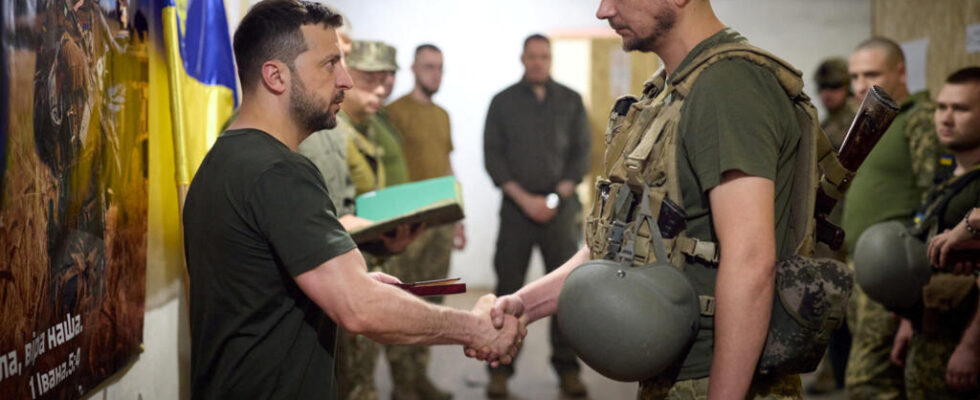In Ukraine, the town of Pokrovsk made the headlines on Monday June 24, when a Russian missile strike once again hit a residential area. As in the rest of the Donetsk region, bombings are part of daily life for the thousands of Ukrainians remaining there.
2 min
This is one of the axes where the fighting is most active in Ukrainethat of Pokrovsk, a district bordering the occupied part of the Donetsk region in the east of the country, writes our special correspondent in Pokrovsk, Emmanuelle Chaze. For residents of towns and villages in the region who have decided not to evacuate, daily life is punctuated by air alerts and bombings; morale is tested, as Tetiana, an economist in a hospital in the city of Pokrovsk, confides: “ Of course, living here in Pokrovsk we are very worried and afraid. Our 6-year-old grandson is traumatized by the bombing, but we stay. Our work is here, we are not going anywhere. »
” It’s very hard »
In Pokrovsk, we continue to live but without any feeling of safety: the strong military presence as well as the bombings remind us that the front line is only about 25 km away. Artem survived the Russian Iskander missile launched on his neighborhood on June 24, five people died and more than forty were injured. Artem’s house, like dozens of others, was heavily damaged. “ It’s hard, he said, because we no longer have a house, no more windows, no more doors. We have to rebuild everything. It’s very hard. »
Dozens of Russian assaults
While the Russians launch dozens of assaults against Pokrovsk with the aim of occupying the entire Donetsk region, the affected inhabitants try to continue living, with the constant risk of bombings and the very real threat of a Russian occupation if the Ukrainian defense lines were crumbling. Ukrainian President Volodymyr Zelensky visited the region on June 26 to meet his troops, AFP said. “ I started this day in the Donetsk region, with our soldiers, with the commander-in-chief (Oleksandr) Syrsky and the new commander of the joint forces, General (Andriï) Gnatov “, he announced in a video published on his Telegram channel that day.
Read alsoEstonian Kaja Kallas, resolutely anti-Putin, at the head of European diplomacy
